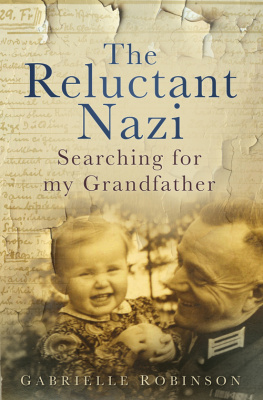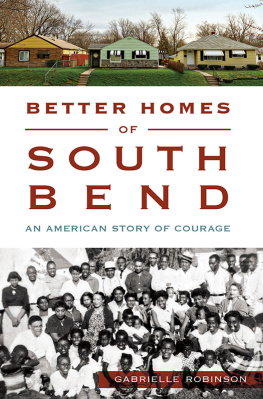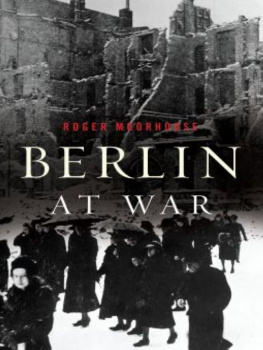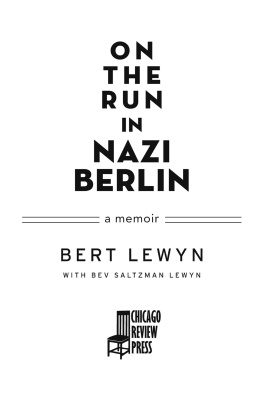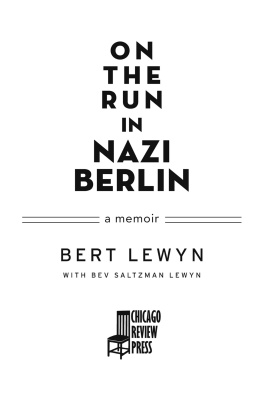
To my husband Mike,
collaborator extraordinaire
The archives of Humboldt University in Berlin provided volumes about my grandfathers career and archivist Ilona Kalb even uncovered as yet unregistered materials. Dr Karin Khler at the Landeskirchliche Archiv in Berlin helped me to trace Pastor Kssner of the Philippus Apostel Church, Dr Mauersbergers archive for Berlin-Mitte gave much information about the district and its history, and Pastor Ingrid Hamel sent me material about the Charite Chapel. Dr med Manfred Strzbecher provided information on auxiliary military hospitals. I often relied on Dr John M. Lewis for historical and military information. Finally, I want to thank Eric Myers whose comments on an early version of the book helped me to revisualise it.
I have been lucky to have found Isabel Atherton as my agent. She provided insights which led to a major revision and never failed to help with her enthusiasm and efficiency. Sadly, my mother had already passed away when I started but I have absorbed much from her and my stepfather, Dr Hanns Martin Schoenfeld, filled in some gaps. My son, Dr Benedict Robinson, provided related literature and suggested improvements. But the most indefatigable collaborator was my husband Dr Mike Keen. He spent hours over the drafts and helped me to reorganise. Many of the chapter titles are his as well. Most importantly, he supported me with his love and enthusiasm. It truly was a collaboration.
Contents
1
Corpses lie in a chapel of the Ziegelstrasse Clinic, for the most part without clothes, men and women together in layers.
I never wanted to write this memoir. As a child growing up in Germany in the 1950s, I heard a few family stories about the war, but mainly there was silence. We did not talk or ask about the recent past. We wanted to forget it. The stories I did hear merge in my imagination with transient memories like half-remembered dreams. I see my mother and myself on a crowded railroad station platform, jostled by hundreds of people. I am 2 years old, hardly able to walk, wrapped in a brown double-breasted coat against the winter cold, my hands dug deep in its big pockets. From my childs-eye view I see only a wall of bags and suitcases pressing around me and more feet than I had ever noticed before. I am scared by the shrieks, sobs and shouts that fill the air. I do not understand why my mother repeats constantly, sometimes shouting above the noise all around, Dont let go of the suitcase handle. Never let go. Keep your little hand tightly on the handle. She herself is loaded down with luggage and has no hand free to hold on to me. It was February 1945. We were fleeing from Berlin, having been bombed out of our apartment for the second time in two years.
Another much clearer memory comes from the winter after the war. We lived in one and a half rooms of a tiny thatched and half-timbered farmhouse in Suderburg, Lower Saxony, where my mother, grandmother and I were evacuated in 1945. The cottage did not have indoor plumbing. I remember not so much the cold and hunger of that time as the delight when farmer Ohlde, who owned the cottage, dug into the pig trough to fish out a moist morsel of a potato for me. Even better, sometimes his old mother got up from her spinning wheel to dip the potato in salt. Whenever Herr Ohlde had no handouts for me, my grandmother I always called her Nyussi for reasons I cant remember took me outside, past the compost heap on the right and the pigs on the left, to look for the beavers under the wood pile. Somehow we always just missed them. So Nyussi told me stories about their lives. I can still hear her melodious slightly accented German she was a native Hungarian and see her lively dark eyes as she began her story: You see, Brielchen, a pet name invented by my grandfather, the beavers are just beneath where we stand now and they have warm and cosy burrows and a big larder stuffed with good things to eat. I wondered whether perhaps they, too, enjoyed potatoes with salt. As I looked all around the wood pile for the sight of a beaver, Nyussi went on: The beavers do not care how cold the winter gets for they always have this cosy hide away. I stared at the wood pile until my eyes hurt but I never spotted a single beaver. When I got too chilly, Nyussi took me back inside and I crawled under the table pretending it to be in a beaver burrow. I loved the beavers and their adventures underground. Nyussis stories always delighted me and made me forget that I was hungry and cold. It was only much later when I was in my forties that my mother mentioned casually in a conversation that Nyussi had made up the beaver stories. There never were any beavers there at all. Even after so many years I felt a pang of sadness and loss that has not entirely left me even now.
Apart from such occasional memories, the Second World War was not part of my world and I was not bothered by the silence about it. We were all looking forward, not thinking backward. As a child I did not ask questions about the war. As an adult I realised that my mother, my only surviving relative, did not want that subject brought up. Then, sixty years after the end of the war, I made two discoveries that reawakened the past and changed everything. The first brought the war back into my world in terrifying detail; the second opened the floodgates to a torrent of questions about my grandfather, the Nazi era and my national origin.
In the summer of 2005, after my mothers death, my husband Mike and I were holidaying in her Vienna apartment. We had returned from a hike in the hills above the city, stopping at vineyards along the way. I was pleasantly tired and just wanted to relax with a book before going to bed. As I plucked Effie Briest , my favourite Theodor Fontane novel, from high up on the shelf of a bookcase, two small objects tumbled to the floor. I picked them up and saw that they were two notebooks bound in faded green cloth with AGENDA stamped in gold at the top of each. Curious, I flipped through the pages. They were covered from top to bottom in small, pencilled writing. I immediately recognised it. It was my grandfathers hand.
Seeing his tiny, precise lettering after so many years brought back a flood of memories. I had spent the happiest years, all too few, of my childhood with him until his death in 1955. Api, as I affectionately called him, took me in when my mother could not look after me any more. My father had been killed in the war, shot down over England in 1943 in his single-engine fighter plane, and my mother worked full time in Vienna. I had been passed around, staying with an aunt, with my fathers parents and, finally, in an Ursuline boarding school in Vienna where I fell ill with scarlet fever. Even though at the age of 61 he himself still was struggling to rebuild an existence in the villages and small towns of northern Germany, Api gave me a loving home and, for the rest of his life, was both father and grandfather to me.
Seeing his familiar writing again after many years, I remembered the poems he had written for me to recite and the corrections he had made on my Latin grammar. I pictured Api as I remembered him, a thin and tall man with cropped white hair who walked with a slight stoop. His bright blue eyes always seemed to be laughing. He had a fine, narrow nose and his thin lips echoed the smile in his eyes. I do not remember that Api ever raised his voice against me in anger. He invented all sorts of affectionate names for me, calling me Gabruschken, Brielchen, or his little sunshine. When we had nothing after the war, he built me a dolls house out of matchboxes with tiny doll figures made of bits of silver paper he had saved. It had a hospital where we looked after the sick. Of course, I was his head nurse. I was always happy when he joined Nyussi and me for the length of a cigar, wearing his white doctors coat and filling the room with laughter and good spirits.
Next page
